Uber and electric vehicle manufacturer BYD have entered into an important partnership that aims to increase electric vehicle access globally. This new collaboration between the popular ride-hailing service and one of the world’s largest EV producers is attracting lots of attention.
In this news post, we will explore all the key details of the new multi-year deal such as how many electric vehicles will be offered and which international markets they will be available in. We will also look at the shared goals of both companies to make owning an EV more affordable and convenient for Uber drivers.
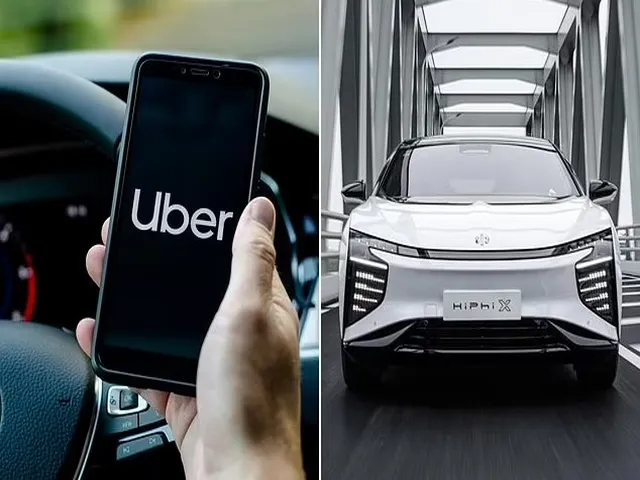
Each aspect of this new partnership has been covered separately in different sections below. Please make sure to read the entire post to learn all the important information about how Uber and BYD are joining forces to support wider EV adoption.
Multi-Year Partnership Brings 100,000 BYD EVs to Uber’s Fleet
Uber drivers in selected international markets will have the opportunity to lease around 100,000 new fully electric vehicles from BYD as part of the new collaboration. The EV manufacturer will initially make these vehicles available in European and Latin American countries where it has existing operations.
BYD and Uber aim to offer their drivers special discounts and reduced pricing to lease the zero-emission vehicles. Both companies expect these incentives will help significantly lower the costs associated with EV ownership for those working on the Uber platform.
It is hoped that more affordable access to reliable EVs will strongly encourage current gasoline vehicle drivers to switch to the cleaner hybrid or battery models. The first markets to see these new BYD vehicles for Uber drivers through the partnership will be countries in Europe and Latin America.
Initial Rollout of BYD EVs Begins in Europe and Latin America
The multi-year partnership between Uber and BYD will launch the new EVs in stages across different global markets. The initial rollout will focus on making BYD’s electric vehicles available to Uber drivers in select European and Latin American countries.
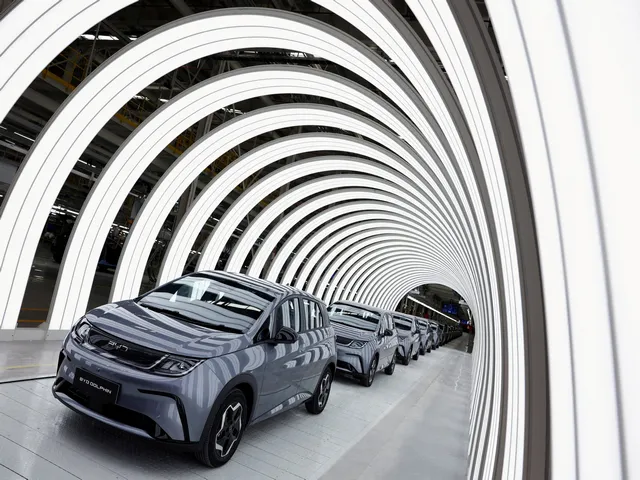
Both regions were chosen for the first phase as BYD already has an established manufacturing presence and car sales network in several European nations as well as markets in Latin America like Mexico, Brazil and Argentina.
The automaker is well positioned to efficiently provide localized sales, leasing and maintenance support for the new EVs to drivers in these priority locations. BYD and Uber plan to spend the first year of the collaboration targeting the rollout across major countries in Europe and Latin America like Germany, France, Spain, Mexico and Brazil where their operations are most developed.
This phased approach aims to smoothly debut the new EVs while ensuring high quality driver service across the initial international markets.
Partnership Aims to Lower EV Ownership Costs for Uber Drivers
Studies conducted by Uber have found that many drivers are reluctant to switch from gasoline vehicles to electric models due to concerns about the higher upfront purchase prices and ongoing operating expenses of EVs. To address this key barrier, lowering the total cost of ownership is a major goal of the partnership between Uber and BYD.
The companies plan to offer drivers attractive incentives like lowering the annual lease payments on BYD EVs by approximately 30% compared to equivalent gas cars. Additional discounts are expected on electricity to charge the EVs, reducing this fueling cost by as much as 60% per year. BYD will provide discounted routine maintenance and repairs, cutting these operational fees by over 20%.
It is estimated these substantial financial incentives will lower the annual ownership expenses of a BYD EV by around $5,500, making them cheaper to operate than gas vehicles. The reduced costs are aimed at making EVs considerably more affordable and appealing for Uber drivers.
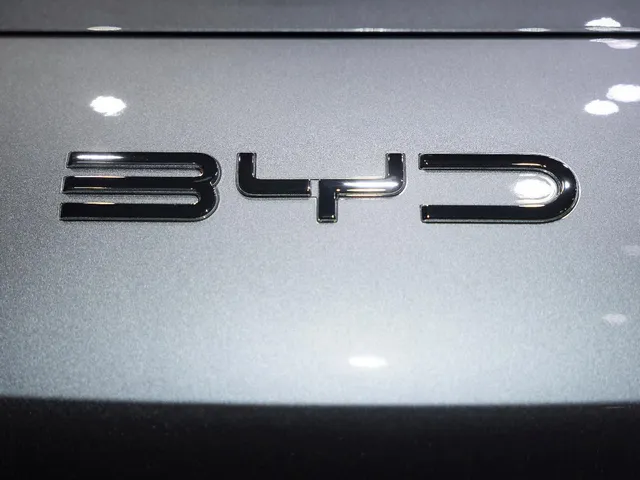
Uber and BYD Offer Incentives for Drivers to Switch to EVs
Through their new collaboration, Uber and BYD are committed to putting drivers in a financially stronger position by making the switch to electric vehicles. In addition to the substantial annual savings on lease payments, fuel and maintenance noted earlier, the companies plan to offer targeted EV adoption incentives.
Drivers who transition their active route operations from gas cars to a BYD electric model could receive a one-time “signing bonus” valued at approximately $3,000. Current Uber drivers who refer other operator friends or family members to the BYD EV partnership may qualify for a $1,000 incentive as well.
BYD will provide fast-tracked financing approval and vehicle delivery within 45 days for Uber drivers enrolling in a BYD EV lease. The automaker estimates these targeted incentives will significantly boost drivers’ real-world earnings by tens of thousands of dollars throughout the ownership period of their BYD electric car or truck. These sweeteners aim to accelerate the rate drivers adopt the new zero-emissions vehicles.
Expansion Plans Include Markets in the Middle East and Beyond
Following the initial European and Latin American rollout, Uber and BYD then aim to expand their electric vehicle partnership into additional global regions. Company officials have outlined ambitions to bring the BYD EVs to select Middle Eastern countries within 18 months where ride-hailing demand and oil wealth have supported early EV adoption.
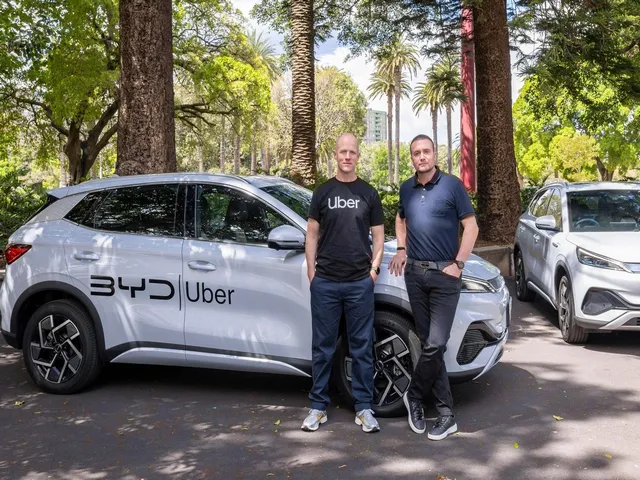
The Middle East’s hot climate is also suitable for the endurance of batteries. Within two years, BYD vehicle availability is planned for expansion into Canada, Australia and New Zealand as charging infrastructure grows. Both firms see opportunities for the new EVs in these economically advanced rideshare markets.
They continuously evaluate regulatory and customer acceptance factors when selecting further international territories. The long-term vision is for BYD to supply Uber drivers across 30 countries as part of a strategy supporting green transportation worldwide. Steady expansion will introduce millions more passengers and motorists to the benefits of efficient electric driving.
Uber and BYD Collaborate on Autonomous Driving Technologies
In addition to traditional passenger EVs, Uber and BYD also will partner on testing and developing self-driving electric vehicles. BYD is heavily investing in advanced driver assistance systems and autonomous capabilities for future models that could operate via an Uber fleet.
Its top engineers will work closely with counterparts at Uber to integrate new BYD technologies into the ride-hailing platform’s teleoperation and remote guidance systems over the next 5 years. The goal is depicting how large numbers of autonomous BYD EVs might serve customers through a national or global Uber network with safety operators monitoring trips.
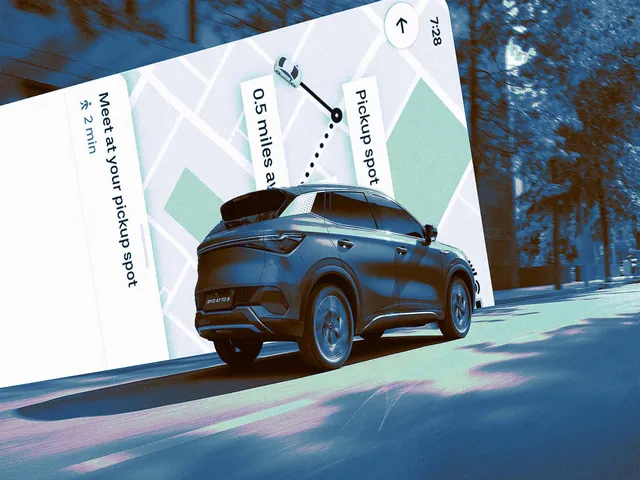
Both companies understand autonomous rides and deliveries could generate immense revenues while removing fatigued human drivers from hazardous driving duties. Lessons from collaboration may shape affordable next-gen vehicles excelling at automated transportation tasks.
Uber’s Commitment to a Greener Future with BYD EVs
Uber’s CEO stated that partnerships such as this illustrate the company’s enduring dedication to sustainability and building greener communities worldwide. Replacing thousands of gasoline cars with emission-free BYD EVs will avoid substantial CO2 emissions over the vehicles’ lifetimes.
Studies also show electric rides produce up to 80% lower air pollutants versus gasoline ones based on local energy mixes. Uber and BYD aim for their vehicles to account for most of the rideshare giant’s kilometers traveled in major cities by 2030.
Officials believe the deal sets a new global standard and will be replicated by other mobility firms to shift the entire sector progressively electric. These long-term environmental benefits greatly outweigh the initial costs of switching to EVs, according to Uber’s leaders and sustainability advisors.
Impact of Global Tariff Hikes on Chinese EV Manufacturers
One challenge facing Chinese electric vehicle brands expanding abroad has been rising import tariffs imposed by key markets like the United States and European Union. Both regions significantly raised duties on finished EVS imported from China out of concerns about growing market share held by Chinese automakers.
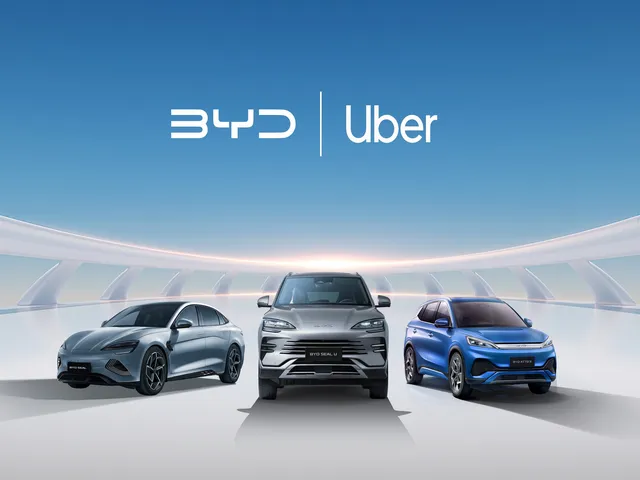
The tariff hikes aim to shelter domestic industries and union jobs within America and the E.U. in the competitive EV sector. For companies like BYD, tariffs as high as 35-50% have made their vehicles more expensive to sell at competitive listings in large overseas markets now basically closed to direct Chinese EV imports due to the cost structure.
BYD executives acknowledged that mitigating these import barriers through local production is critical for sustainable growth serving Uber drivers worldwide.
BYD’s Global Expansion and Production Facilities Outside China
To adapt to rising international trade protections favoring locally-made EVs, BYD has aggressively pursued global production expansion outside its home base in recent years. The automaker and battery producer has invested multi-billion dollar sums establishing assembly plants in markets like Thailand, Hungary, Brazil, and India.
BYD aims to locally build 150,000 vehicles annually at several new overseas factories to serve riders and drivers in surrounding regions. Localization efforts prepare the company’s supply chain for projected demand from partnerships like Uber in both developed and developing markets worldwide.
BYD will soon finalize plans for its first North American electric truck factory to manufacture models for both Uber and traditional freight clients unaffected by protectionist policy obstacles. So, you can keep visiting the Auto Freak website as we will continue posting such news related to this partnership on this blog.


